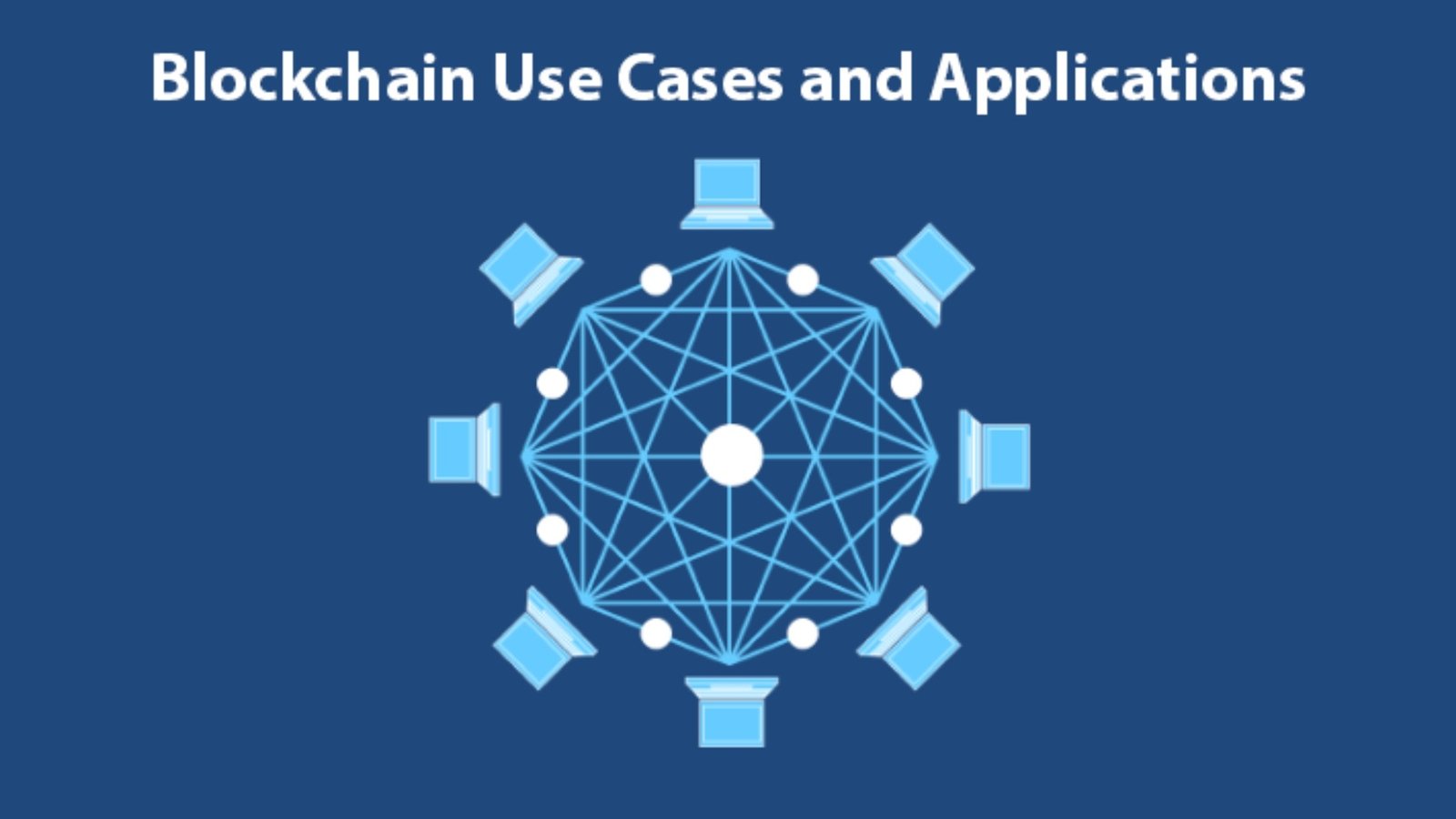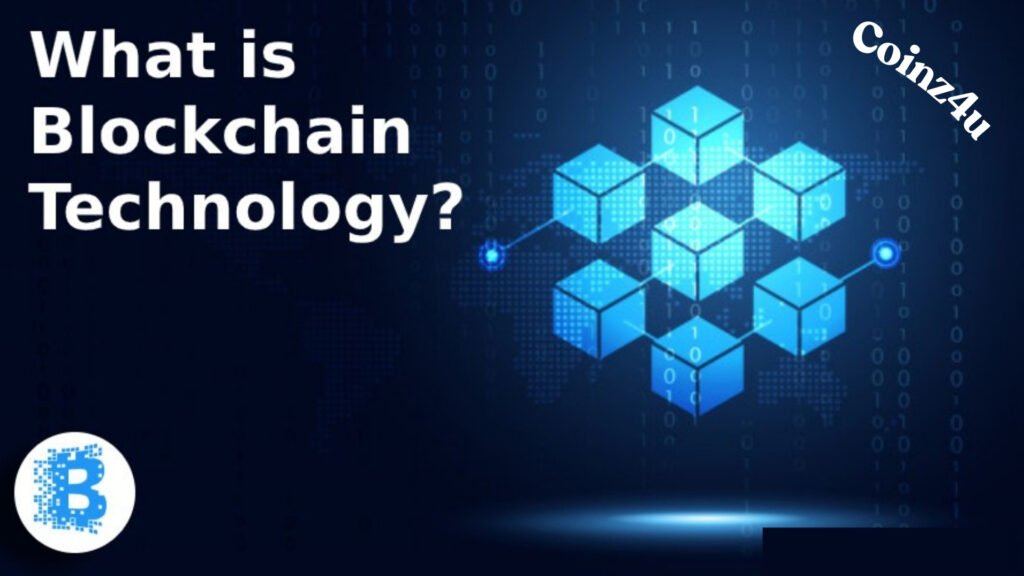Blockchains constitute global ledgers stuck to computers globally. They enable users to record transaction activity, store data, and exchange value safely and securely. The entire cryptocurrency/Web3 ecosystem is built on foundational blockchain technology. It’s the brains behind Bitcoin’s security and why smart contracts are valid. Blockchains’ main selling point is facilitating trustless, permissionless value exchanges without intermediaries. Transferring money from one person to another is the most fundamental example that can be used to demonstrate this.
For the sake of argument, assume that Bob would like to pay Alice. In the past, Bob would have to go through an intermediary, like a bank or other financial institution, to get his money. Then, they would transfer it to Alice. Blockchain technology allows Bob to bypass an intermediary and send money straight to Alice’s account, guaranteeing the security of the transaction. Deterministic procedures protected by cryptography, encryption, mathematics, and physics ensure the transaction is decentralized, eliminating the need for intermediaries.
Who Invented Blockchain Technology?
Even though blockchain-like technologies for document timestamp verification were first developed in the 1980s and implemented in the 1990s. It is widely believed that the unknown creator(s) of the Bitcoin whitepaper in 2008, who went by the name “Satoshi Nakamoto,” was the first to produce a decentralized blockchain. Blockchain technology is the foundation of the Bitcoin network, which emerged in 2009 with its implementation as open-source software. The term “blockchain” was popularized by those who advocated for the technology after Bitcoin’s whitepaper did not use it.
How Does a Blockchain Work?

A book or digital file called a “ledger” documents financial transactions. Ledgers track money flow among economies and accounts. Large businesses like banks store Most ledgers on servers in confidential databases. Multiple computers update blockchains. All network nodes use the same ledger update, storage, and verification software. Public blockchain nodes are financially motivated to connect and verify the ledger using the blockchain’s native coin.
Users suggest ledger modifications by posting account transfers. Public keys are associated with user accounts, whereas private keys are associated with them. Public keys, like email addresses, and private keys, like passwords, are needed to digitally sign transactions, like sending money.
How Nodes Secure Bitcoin Transactions
All the nodes in the network work together in what are called “blocks” to process and verify pending transactions. When every node verifies every transaction, it is practically hard to alter the ledger or the network’s state maliciously. This is because changes to the ledger are validated twice. The digital signature and the public key must be valid for a transaction to go through.
Each valid block updates a growing open ledger. A “blockchain” characterizes the ledger as an unending succession of cryptographically linked blocks. In exchange for their services, nodes receive transaction fees and a portion of the freshly created bitcoin, called a block reward.
There are many different ways to design a blockchain, each with advantages and disadvantages.
- Network Access & Participation: Blockchains can vary in terms of how open or limited the network is to use and participate in. The three main types of blockchains are public (completely open), private (completely closed), and permissioned (open access, limited participation).
- Consensus Mechanism: Blockchains can reach a consensus about transactions through different means. Some of the most popular consensus mechanisms are proof of work (Bitcoin), proof of stake (Solana), and proof of authority (most private blockchains).
- Design Features: Blockchains cannot currently satisfy all desired qualities. Instead, they make tradeoffs to optimize certain feature sets over others between security, decentralization, and scalability—commonly known as the Scalability dilemma. Other important design features include privacy, transaction finality, and more.
Benefits of Blockchain
Blockchains offer several value propositions not available in centralized systems.
- Security: In a sufficiently decentralized blockchain, there is a very high probability that only valid transactions will be confirmed despite the efforts of malicious actors.
- Immutability: Once a block is redundantly confirmed, it becomes part of the unchangeable ledger, which becomes increasingly difficult to alter over time.
- Reliability: Blockchains have globally distributed networks with 24/7 uptime. They are always online and are not restricted geographically or politically.
- Peer-to-Peer: Blockchains eliminate intermediaries that siphon off value from transactions. Parties transact directly with each other without incurring any counterparty risk—the probability that the other participant in the contract will not fulfill their obligations.
Blockchains generally lay the groundwork for a trustworthy, immutable, and highly secure system of economic transactions involving two or more participants instead of depending on trustworthy third parties whose actions are subject to probability. Open-source software that follows instructions takes on counterparty risk. Reducing counterparty risk, eliminating needless intermediaries, and avoiding reconciliations lead to better business efficiency.
Blockchain Use Cases and Applications

Email, messaging, telecommunication, social media, and the Internet are ways to share and use digital information. With its foundation in blockchain technology and hybrid intelligent contracts, the Web3 ecosystem provides a versatile platform for value exchange that can benefit end users across different use cases, leading to a positive social impact.
Monetary System
Bitcoin is an example of a decentralized digital currency that operates independently of any central bank or government by its public permissionless blockchain. Thanks to Bitcoin’s native currency, BTC, there is no need for a central coordinator, which has distribution mechanics and financial incentives built right in. Because of Bitcoin’s censorship-resistant hard cap, there will never be more than 21 million Bitcoins in circulation. Some contend that Bitcoin’s deflationary monetary qualities make it a more reliable store of value than fiat currencies, which are prone to inflation.
Smart Contracts
Examples of public permissionless blockchains, such as Ethereum’s, demonstrate how intelligent distributed computer systems can reliably and securely process t contracts—conditional agreements. Users don’t need to keep tabs on the whereabouts of a particular currency when they may teach the blockchain to “if x event happens, then execute y action.” The blockchain then processes these instructions, turning data into outputs (value transfers). The emergence of decentralized finance (DeFi), characterized by permissionless and transparent financial services, directly results from this potential.
Asset Tokenization
Several initiatives are using the blockchain as a public, worldwide asset ledger. The creation of a one-of-a-kind non-fungible token (NFT) by programmers is possible using smart contracts. This token can represent ownership of physical assets like buildings, cars, rare trading cards, and more. Assets previously illiquid become globally liquid thanks to blockchain technology, which verifies ownership and transparently tracks its life cycle.
Enterprise Middleware
Blockchains can function as middleware to verify that several enterprise databases have identical records without exposing private company information to the public blockchain. Businesses can utilize a public blockchain to keep each other apprised of each other’s activities. However, it is accessible 24/7, easily auditable, immune to manipulation, and requires no authorization. Data is kept in a zero-knowledge proof (ZKP), so only agreement parties may decipher it. The evidence provides a shared context for the current status of the business process, for instance. The present conditions of a seller-buyer volume discount agreement.
Ledger of Record
Blockchains can act as immutable repositories to preserve historical records. In dispersed marketplaces with numerous databases, reliable records help alleviate friction. Financial contract monitoring, medical record storage, identity tracking, and countless other areas can all benefit from blockchains’ “Ledger of Record” feature.
Utility
Customization of blockchains to meet a particular group is within the realm of possibility. Among its many potential applications are the provision of decentralized video streaming, the hosting of a tamper-proof online game, and the immutable storage of files. Like torrent systems, blockchains allow users to pool resources from a decentralized network to create a public good.
Blockchain Gaming
Blockchains can trace and confirm asset ownership using NFTs, representing ownership of digital items and collectibles in games. Blockchain games become locally run when users trade in-game assets in open marketplaces. While maintaining full custody of them, they tap into a global liquidity pool. In the future, gamers may be able to exchange in-game assets between different games thanks to interoperable blockchain technology and the metaverse.
Supply Chain
Blockchain, an immutable distributed database, can improve supply chain procedures by increasing traceability and better coordination among many parties, allowing quicker and more cost-efficient product delivery. Because everyone has a copy of the ledger, it’s possible to track the progress of transactions, find mistakes, and ask counterparties to answer for their conduct. Because rewriting all blocks on all shared copies of the blockchain would be necessary, no participant can delete past data.
Insurance
There is optimism that oracles, smart contracts, and blockchain technology can address this. The traditional insurance industry’s opaqueness streamlines the process for all parties concerned and expands access to insurance in underserved areas. As an honest replacement for the antiquated claims procedure, intelligent contracts automate. The implementation of insurance plans through the use of if/then parameters.
In Summary
In the past ten years, blockchain technology has evolved from a promising new direction to a practical resource, benefiting many individuals worldwide. The exponential growth of blockchain-based smart contracts is leading. The groundwork for blockchain technology is to disrupt many existing sectors while creating new ones. Despite this, blockchain technology has not yet achieved its full potential. Applications that reduce reliance on trust and deterministic agreements backed by cryptographic truth will accomplish this.
[sp_easyaccordion id=”3640″]


